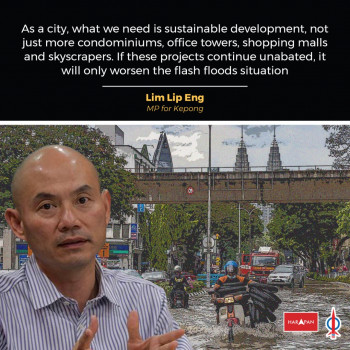by Lim Sue Goan, translated by Soong Phui Jee
The Malaysian automotive policy has always been protecting domestic cars over the past 30 years. Would motorists be able to buy imported cars at cheaper prices after the sudden announcement of the government to cut import duties on cars from Japan and Australia over the next three to four years? It is not the case if we study carefully.
Due to the free trade agreement signed with Japan and Australia, Malaysia has to abolish the import duties on cars from the two countries in phases, namely to reduce to 15% this year, 10% next year and 5% the year after next. However, the excise duties and sales taxes on cars from the two countries are not reduced.
As we all know, there are three types of duties on cars, namely the import duty, the excise duty and the sales tax. The highest is excise duty that charges between 7%% to 105% while the sales tax charges 10%. The gradual repeal of the 30% import duty while retaining the excise duty would not cause car prices to substantially fall.
In addition, the sales of Australian cars is small in Malaysia and not many people actually know about Australian cars. The effect of abolishing the import duties on cars from Australia will thus, be small.
Japanese cars are popular in Malaysia and most Japanese cars in local market are imported from ASEAN countries. There are also Japanese car assembly plants in Malaysia. Due to the ASEAN trade agreement and as import duties of CBU (completely built units) cars imported from ASEAN countries have already been reduced from 20% to 5% since March 2006, the repeal of import duties on cars from Japan is then inevitable.
We will have to wait and see how much car prices could be reduced after the repeal of import duties on cars from Japan and Australia. It is, however, believed to be modest. And since duties continue to remain high, prices of other bestselling cars, like Korean, European and US cars might remain unadjusted.
There are a few factors causing the government not to adjust excise duties. Firstly, it is a huge income. The annual car sales is over 600,000 units and therefore, the annual income is RM7 billion. Cutting the excise duty might worsen the fiscal deficit.
Secondly, a sharp decline in car prices will bring a huge impact to the used car market and banks will also require borrowers to fill in the difference between loan amounts and actual car values.
Thirdly, a great fall in foreign car prices will also hit the market positions of Proton and Perodua.
Therefore, even Pakatan Rakyat has promised in its manifesto to repeal car excise duties in five years to make car prices more competitive while producing cars with minimum retail price of RM25,000, it is expected that the BN would not announce other measures to reduce car prices before the election due to the above considerations.
It is believed that the unexpected announcement on the gradual repeal of import duties on cars from Japan and Australia is meant to defuse political pressure.
Therefore, it is not practical for consumers to expect a major adjustment in car prices, including hoping for a significant open up in the revised National Automotive Plan (NAP) scheduled to be released in June. The government has hinted that the focus will be on the development of energy efficient vehicles (EEV) to avoid overlapping developments.
In any case, car is a necessity of life. As car prices in Malaysia are twice as expensive as in foreign countries, many young people have become car slaves. Since the government’s announcement cannot satisfied the people, car prices are expected to become one of the election issues.
Pursuing protectionism and not opening up policy will cause the pace of reducing car prices to remain as slow as the speed of a snail.
______________________
* This article first appeared in mysinchew.com and the views expressed are the personal opinion of the columnist.



